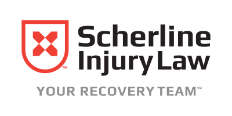Any business opening its doors to business invitees (customers, clients, vendors, and other visitors who come in for business-related purposes) must use reasonable care to maintain its premises in a safe and passable condition and free of dangerous conditions. Failure to do that can easily result in slips, trips, and falls for which the business itself is responsible and can be held legally liable.
Avoid these slip and fall hazards
If you’ve fallen at a place of business, you’re not alone. The circumstances of your situation will be unique, of course, but there are some common reasons why people fall at business establishments, particularly retail stores. If you are a store owner, be sure to caution these and maintain your property to prevent falls.
- Wet floors – wet floors are the result of any number of different potential hazards, including cleaning solution left over after mopping, spilled liquids coming from broken jars or leaking coolers, produce misters at grocery stores, sprinkler systems outside spraying on walkways into the establishment, or inclement weather
- Trip hazards – trip hazards abound in retail locations, and can include boxes of inventory that hasn’t made it on the shelf yet, cluttered walkways, narrow aisles, unsecured floor mats or extension cords, throw rugs, unstable displays and more; these can all greatly increase the chances of an injury-causing trip and fall accident
- Unstable surfaces – potholes in the parking lot, unmarked slopes, stairs without a handrail, switches in floor surface material (a sudden switch from carpet to tile, for example) can all make for a loss of traction, particularly for a customer who is focused in on his or her shopping
- Poor lighting – poor lighting, particularly in parking lots, unmarked steps, stairways, curbs and at doorjambs leading outside make it more likely that customers will slip or trip, especially outside at dusk and dawn, when natural light is weak





